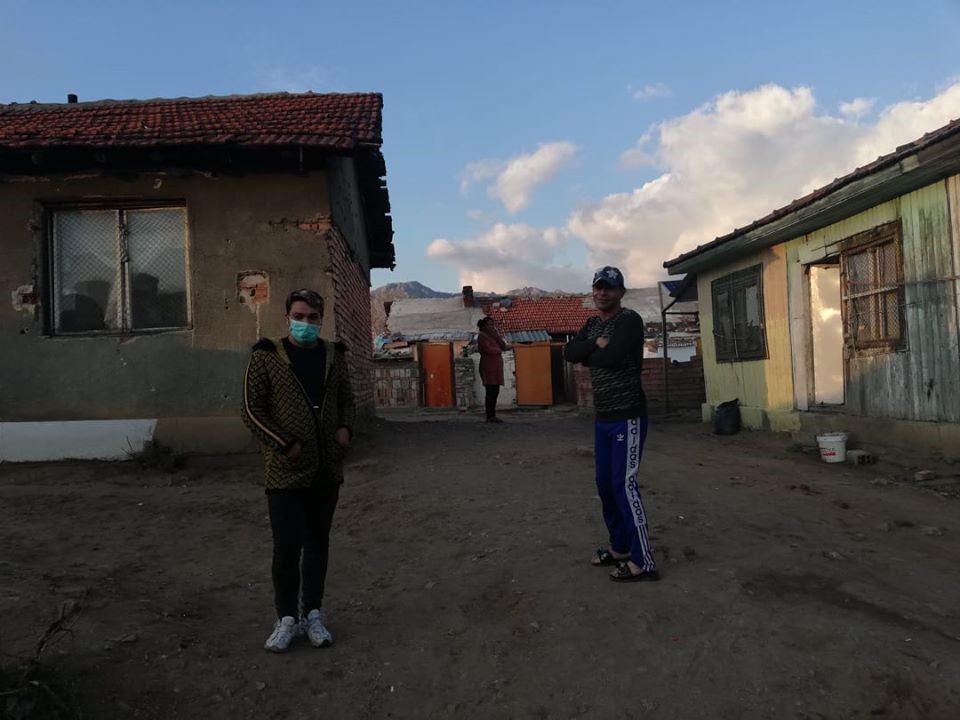ROMACT Municipalities’ Solutions to Limit COVID19 Crisis Impact on Roma Communities
Often perceived by citizens as the level having the most impact on their living conditions, local authorities are on the forefront on the fight against COVID19 pandemic. While a number of ROMACT municipalities have taken measures to limit the outbreak impact on citizens, the ROMACT Programme is about to support the efforts of the local authorities and of the Community Action Groups to respond to the needs of the most vulnerable.
Good practices at local level
In Bulgaria and Romania, several ROMACT municipalities, in cooperation with other local, regional national public and private stakeholders, have quickly taken measures to inform all citizens, including the Roma, on the preventive measures and circulation restrictions.
In many municipalities, the ROMACT facilitators, the members of the Community Action Groups and of the Task Forces for Roma Inclusion were involved in the assessing the situation of the most vulnerable people in the communities, planning of immediate actions and implementation of awareness campaigns where needed, both on health and legal matters related to confinement, but also in concrete provision of support to the most in need for whom staying at home implies impossibility of securing basic subsistence resources.
In Resita, Romania, the Social Assistance Directorate together with the Voluntary Service for Emergency Situations and Nevo Parudimos conducted a preventative campaign against COVID19 spreading with leaflets and posters in the three Roma neighbourhoods of the municipality.
Identification of the most marginalised families was also performed by local activists, Roma Community Action Groups or municipal staff, and measures were taken to provide these community members with basic food and hygiene products.
In Sliven, Bulgaria, the Community Action Group assessed the situation in Nadezhda neighbourhood and following its letter to the municipality management, 200 people were given access to the Public Canteen Programme.
Meanwhile, in Carei, Romania, sanitary and personal hygiene products provided by the County Health Department were distributed to disadvantaged families from the Roma communities.
Another good practice worth mentioning is also the creation of a dedicated phone number for people in need, reachable on a 24 h basis, like in Bistrita, Romania.
ROMACT support to joint actions to limit COVID19 crisis impact on Roma
Besides its adapted support to the cooperation between the local authorities and the Roma communities in this COVID19 crisis period, ROMACT is about to start supporting the efforts of the municipalities and of the Community Action Groups to respond to the needs of the most vulnerable and multiplying the good practices across ROMACT municipalities.
15 ROMACT municipalities in Romania and 17 municipalities in Bulgaria will receive small grants (to which the local authorities contribute with co-financing and in-kind support, like provision of machines for streets / neighbourhood disinfection, water distribution, purchase and transportation of goods etc.) in order to:
- conduct awareness campaigns on health (hygiene and spread of COVID19) and confinement / social distancing rules and regulations (posters, leaflets, prints of travel permit forms etc.);
- provide punctual information on channels of emergency support and adaptation of municipal services, including the maintenance of support hotlines for citizens;
- distribute protection masks and gloves to mediators, social workers etc.
- provide family packages of hygiene / sanitary products (soap, different cleaning materials, disinfectants etc.) and of basic food items to the most in need;
These actions are envisaged to reach around 15,000 people with supplies and more than 30,000 people with concrete information on how to cope better and stay safe during this time of unprecedented crisis.
These small joint initiatives illustrate models of cooperation between authorities and the communities and are based on active citizens’ participation.
Beyond concrete actions, they put value on the importance of joint efforts to safeguard the welfare of the local communities, the protection of their human rights, in a solidarity that builds further up the relations at local level and improves the prospects of the Roma social inclusion overall.

